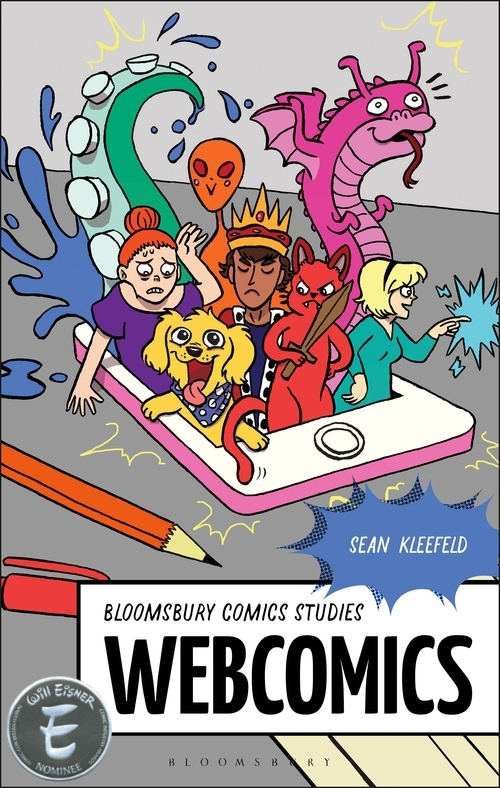Before I start writing this entry, I double-checked two things. First, have I indeed read all of Jim Ottaviani's comics? I have. Second, have I formally reviewed all of Jim Ottaviani's comics here? No, it looks like only about half of them. I wanted to check those two things to see if I was writing so much about his work that I might sound like I'm a paid shill or something. Because he's a comics author whose work I have yet to find less than excellent! It's always very well-researched, and comes across as both historically accurate and insightful about its subjects. Astronauts: Women on the Final Frontier is no exception!
The book charts the history of women in space exploration, narrated largely from the point of view of Mary L. Cleave, an astronaut that went on to serve as NASA's Associate Administrator for the Science Mission Directorate for several years. The story starts early in America's space program and runs up through the modern day, although with Cleave as the focus, a good chunk of the book not surprisingly covers the program in the late 1970s and early 1980s. This largely coincides with when women finally began making some headway in NASA and Sally Ride's first space trip -- for which Cleave was Ride's earth-bound CAPCOM -- is well-documented here. As with any/all Ottaviani's books, this is very well researched, well documented, and well organized. If you've seen my reviews of any of his previous books, all of the craft that was on display there is seen here as well.
While the sexism and misogyny that hindered women's progress in the space program for decades is plainly evident throughout the story, it does feel a little... sanitized? It's very clear that women are being treated unfairly and are being sidelined and largely dismissed because of their gender, but I can't help but believe that the only systematic barriers are being relayed and the more overt, personal attacks were left out. I mean, this isn't the first book I've seen that compared it to a "Good Ol' Boys' Club" so I can't imagine that any number of insults and slurs weren't thrown around with casual regularity. There could be any number of reasons this type of gross behavior was omitted -- children are most certainly a prime audience for this book; Cleave herself may not have subjected to (or remembered being subjected to) much of it; maybe Ottaviani felt it distracted from the focus on what the women themselves were actually doing, as opposed to what they were subjected to. Maybe all of those reasons and more. I don't know that I'd consider a fault of the book, but I do wonder if it undersells the obstacles women had to overcome.
Maris Wicks does an excellent job relaying everything. He deceptively simple style might not seem an intuitive choice for a book that has dozens of unique, named individuals and literally tons of specific scientific equipment to be rendered, but she conveys all those things with a straight-forwardness that keeps them all easy to visually read and understand. This is her second time illustrating one of Ottaviani's books (she previously worked on the Jane Goodall biography Primates) and the two seem to work well together. Or at least well enough to make some great comics!
If you've read and enjoyed any of Ottaviani's work in the past, you'll enjoy this. He does an excellent job of relaying practical, historical information in a fun and engaging manner. You get a good story and learn something as a bonus. Why these books aren't on every comic fan's bookshelves, I don't know!
Now Available!
Blog Archive
-
▼
2020
(296)
-
▼
April
(25)
- Fantastic Four 2099
- Astronauts Review
- Audio Interview Links
- History of the Marvel Universe Review
- Weekly Recap
- Why Comics Readers Won't Migrate to Digital
- A Morrie Kuramoto Anecdote
- Alterna as a Disruptor
- Big Black Review
- Weekly Recap
- My Friend Dahmer Review
- September 1947 Redux
- Remember 2010?
- USPS Concerns
- Metatextual Artifacts
- Weekly Recap
- Morrie Turner + Mr. Rogers
- Instructible Comics
- Comics: Right Now Redux
- The Years Start Coming & They Don't Stop Coming
- Last of the New Comics
- Weekly Recap
- Wally Wingert's "Adam West" Redux
- Sturgeon's Law & The Quest For Maintaining Relevan...
- Comic Strips as a Bellwether
-
▼
April
(25)







0 comments:
Post a Comment